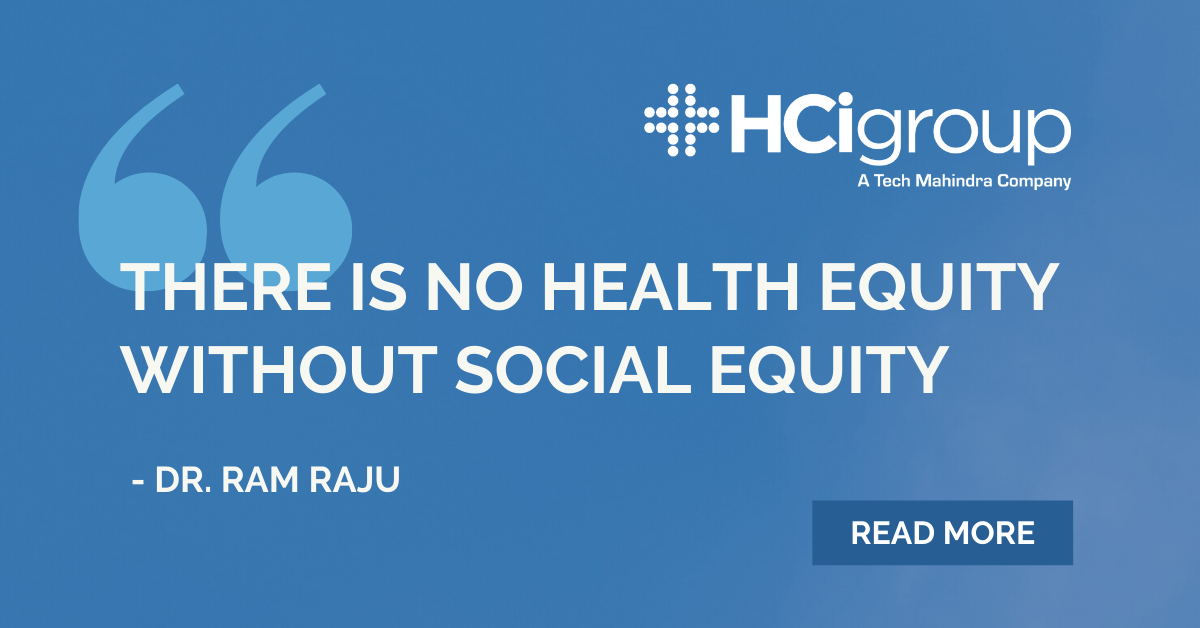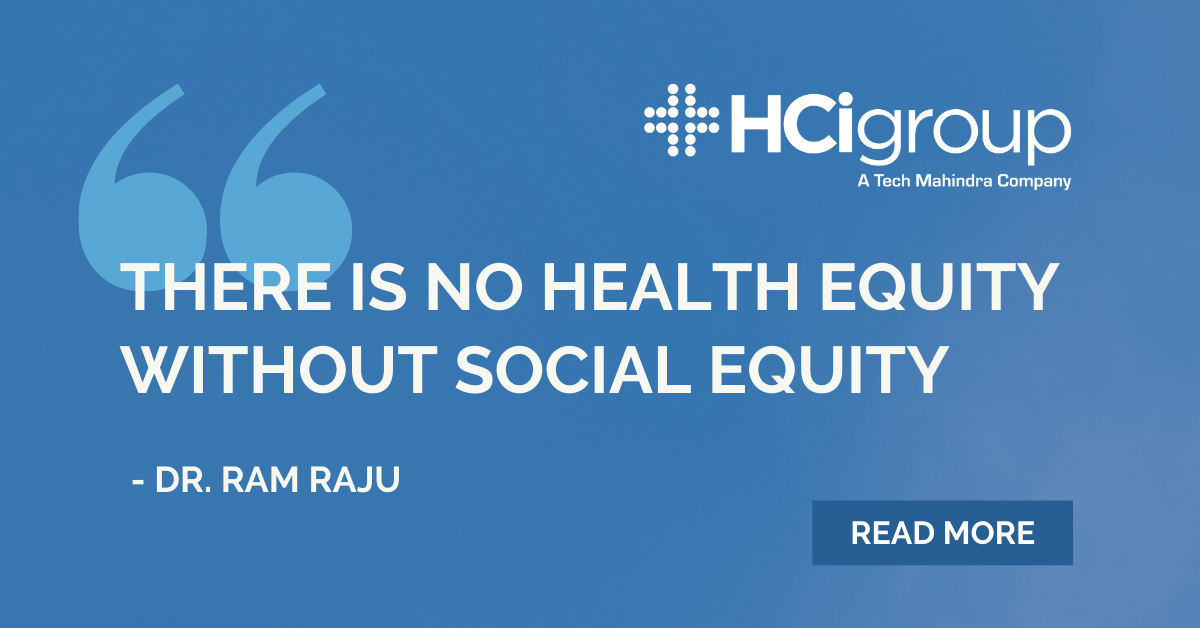Virtual Care: No Health Equity without Social Equity feat. Dr. Raju


In the first edition of the Virtual Care Leadership Series hosted by Ed Marx, Chief Digital Officer at The HCI Group, we welcomed Dr Ram Raju, MD. to discuss the acceleration of virtual care platforms around the globe and the NYC region.
Before going on to take his current position as Senior Vice President and Community Health Investment Officer of Northwell Health, Dr. Ram Raju was CEO at New York City Health and Hospitals, where he pioneered the implementation of digital foundations at the organization. Dr. Raju has especially focused his digital transformation and virtual care efforts on addressing health equity and disparities in social healthcare. He firmly believes that there is no health equity without social equity, and we were interested to learn more about his thoughts on this and how virtual care can play its part in addressing social issues.
How has this pandemic affected your organization and what digital technologies are you deploying to help with the situation?
Northwell has been one of the leaders in TeleHealth for at least 10 years. Usually it is being utilized for the management of chronic diseases. However, with social distancing in place, we at Northwell have started using TeleHealth as a platform for patients to talk to their primary care doctors. If a patient believe they may have the COVID-19 virus they should not be attending emergency departments, but instead talk on the telephone with their healthcare provider. They can then ask them the relevant questions and make the decision if they need to be seen by a healthcare professional for treatment. This essential digital triage capability means that we are not overwhelming our healthcare system and emergency departments and most importantly – we are able to limit the spread of the virus.
This pandemic has really changed the way we practice medicine, and this will definitely have a lasting effect on healthcare systems in New York and the rest of the country. Whilst we provided popular TeleHeath, TeleRadiology and TelePsychology platforms at Northwell, there were still issues with acceptance from the patients. Despite offering the service, they maintained their old-fashioned ways of talking to their doctor face-to-face and didn’t want to adapt to TeleHealth alternatives. However, the ability to provide TeleHealth options during this pandemic has now been a calming source for patients, who are grateful to be able to have this option while they are social distancing. We at Northwell believe that this will not change after the restrictions are lifted. People will choose to telephone or video call their doctor as a more convenient alternative to visiting them, and they will have adapted to this idea as a result of the pandemic.
Fundamentally, throughout this period of time the perception of the care that patients would receive through virtual means has also changed. People are becoming aware that they are able to still have a good discussion with their doctor through virtual care platforms and the use of digital home devices (e.g. self-measuring blood pressure or sugar level devices). Virtual Care will inevitably take off as a result of this pandemic and will no longer be exclusive to organizations like Northwell that have already been embracing the technology.
Throughout your career you have focused on health equity and disparities in healthcare. What are these disparities and how can digital technologies be utilized to change them?
When this pandemic started in February, we focused on protecting high-risk individuals who are medically vulnerable with health conditions like respiratory problems or diabetes. However, we also have socially vulnerable people, like those who have poor literacy, low-income or poverty, who are potentially going to be more affected by this pandemic than others. Though COVID-19 can affect everybody, the outcomes are going to be very different for different people. It is clearer now that minorities in this country are disproportionately dying from the virus compared to the majority of the population.
Whilst statistically, minorities tend to have more health issues like diabetes, we also believe that social issues make a difference. For instance, you cannot practice social distancing if you have to travel to get to work and a large proportion of frontline workers in this country are in fact minorities. In addition, health literacy (being able to speak and read English proficiently) is important to be able to listen and understand government announcements, news coverage and information provided by health organizations. Those who do not have a good level of literacy are less likely to be following the best practices outlined by authorities and health systems, and as such are more likely to catch and spread the virus.
In order to address issues of social disparity and health literacy, Northwell developed a TeleHealth chat box application that allows patients to download health information and updates to their smartphone at a literacy level that is appropriate for them. It can also be translated into any language and obtained through a variety of mediums including visual, auditory or written. This digital platform has helped us connect with socially vulnerable people more than ever before. Allowing patients to receive relevant information they require in the language, medium and literacy level of their choice is an important part of controlling the spread of this disease.
________________________
Click Here to watch the webinar recording of “Virtual Care with Ed Marx and Dr. Ram Raju” held live on the 21st April 2020.

-7.png?width=1200&name=Digital%20unplugged%20(1)-7.png)